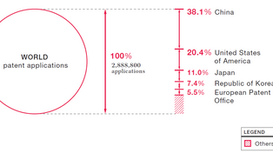How is copyright obtained?
- Admin

- May 11, 2023
- 1 min read

Copyright differs from patents and trademarks in the way it is obtained. Copyright protection is automatic upon the creation of a work, as per the Berne Convention, without the need for registration or prior approval. However, while this may save social costs, it may also create difficulties for rights holders in enforcing their rights. For instance, when enforcing their rights, rights holders may find it challenging to provide independent evidence of the completion date and the copyright owner's identity, depending on the nature of the work. To address this challenge, many countries have established voluntary registration systems. Registration provides independent evidence of the copyright owner's completion date and identity, which can help rights holders enforce their rights. In cases where their country does not have a register, right holders may register their work in the voluntary registry of another Berne Convention member country. Although registration is unnecessary for copyright protection, it can serve as preliminary or presumptive evidence of ownership in many legal systems.






































Comments